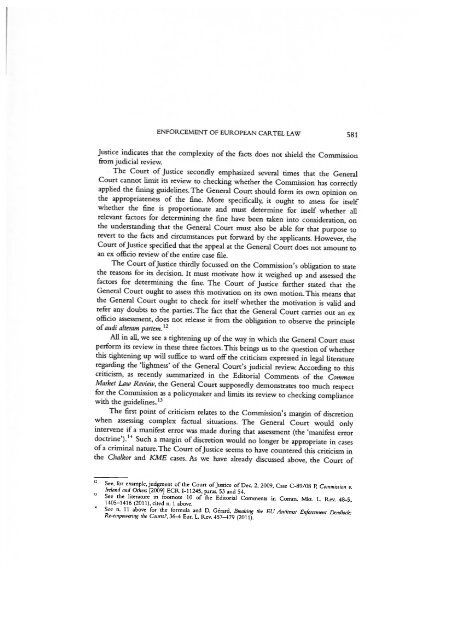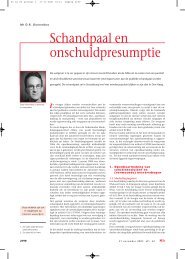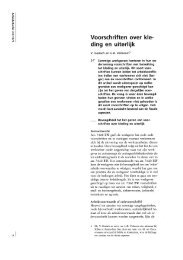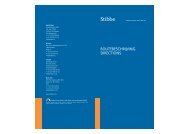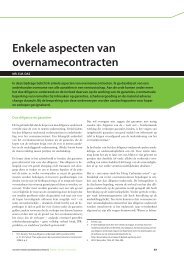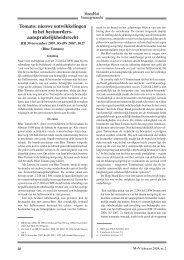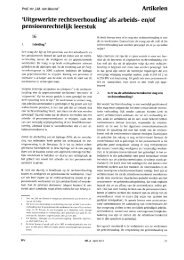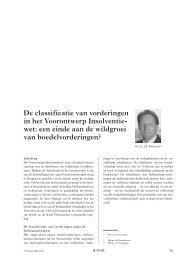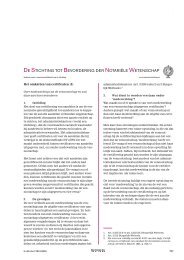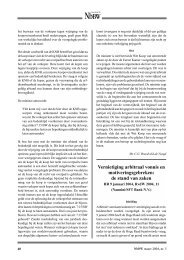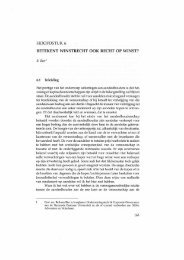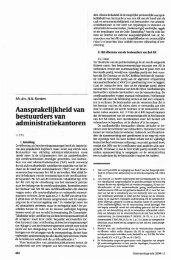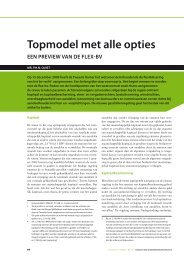The Lawfulness and Acceptability of Enforcement of ... - Stibbe
The Lawfulness and Acceptability of Enforcement of ... - Stibbe
The Lawfulness and Acceptability of Enforcement of ... - Stibbe
You also want an ePaper? Increase the reach of your titles
YUMPU automatically turns print PDFs into web optimized ePapers that Google loves.
2<br />
from judicial review.<br />
Justice indicates that the complexity <strong>of</strong> the facts does not shield the Commission<br />
‘<br />
See the literature in footnote 10 <strong>of</strong> the Editorial Comments in Comm. Mkt. L. Rev. 48—5.<br />
Irel<strong>and</strong> <strong>and</strong> Others [2009] ECR 1—11245, paras. 53 <strong>and</strong> 54.<br />
1405—1416 (2011), cited n. I above.<br />
Re-empowering the Gourts?, 36—4 Eur. L. Rev. 457—479 (2011).<br />
See n. ii above for the formula <strong>and</strong> D. Gerard, Breaking the EU Antitrust <strong>Enforcement</strong> Deadlock:<br />
See, for example. judgment <strong>of</strong> the Court <strong>of</strong> Justice <strong>of</strong> Dec. 2, 2009, Case C—89/08 P. Commission v.<br />
General Court ought to assess this motivation on its own motion. This means that<br />
the Chalkor <strong>and</strong> KME cases. As we have already discussed above, the Court <strong>of</strong><br />
<strong>of</strong> audi alteram partem.’<br />
<strong>of</strong> a criminal nature.<strong>The</strong> Court <strong>of</strong>Justice seems to have countered this criticism in<br />
4 Such a margin <strong>of</strong> discretion would no longer be appropriate in cases<br />
doctrine’).’<br />
with the guidelines.’<br />
intervene if a manifest error was made during that assessment (the ‘manifest error<br />
when assessing complex factual situations. <strong>The</strong> General Court would only<br />
2<br />
3<br />
Market Law Review, the General Court supposedly demonstrates too much respect<br />
perform its review in these three factors.This brings us to the question <strong>of</strong> whether<br />
All in all, we see a tightening up <strong>of</strong> the way in which the General Court must<br />
this tightening up will suffice to ward <strong>of</strong>f the criticism expressed in legal literature<br />
factors for determining the fine. <strong>The</strong> Court <strong>of</strong> Justice further stated that the<br />
an ex <strong>of</strong>ficio review <strong>of</strong> the entire case file.<br />
<strong>of</strong>ficio assessment, does not release it from the obligation to observe the principle<br />
for the Commission as a policymaker <strong>and</strong> limits its review to checking compliance<br />
revert to the facts <strong>and</strong> circumstances put forward by the applicants. However, the<br />
regarding the ‘lightness’ <strong>of</strong> the General Court’s judicial review. According to this<br />
relevant factors for determining the fine have been taken into consideration, on<br />
the General Court ought to check for itself whether the motivation is valid <strong>and</strong><br />
refer any doubts to the parties. <strong>The</strong> fact that the General Court carries out an ex<br />
whether the fine is proportionate <strong>and</strong> must determine for itself whether all<br />
applied the fining guidelines. <strong>The</strong> General Court should form its own opinion on<br />
the appropriateness <strong>of</strong> the fine. More specifically, it ought to assess for itself<br />
the underst<strong>and</strong>ing that the General Court must also be able for that purpose to<br />
the reasons for its decision. It must motivate how it weighed up <strong>and</strong> assessed the<br />
criticism, as recently summarized in the Editorial Comments <strong>of</strong> the Common<br />
Court cannot limit its review to checking whether the Commission has correctly<br />
Court <strong>of</strong>Justice specified that the appeal at the General Court does not amount to<br />
<strong>The</strong> Court <strong>of</strong> Justice secondly emphasized several times that the General<br />
<strong>The</strong> Court <strong>of</strong>Justice thirdly focussed on the Comniission’s obligation to state<br />
<strong>The</strong> first point <strong>of</strong> criticism relates to the Commission’s margin <strong>of</strong> discretion<br />
ENFORCEMENT OF EUROPEAN CARTEL LAW 581


